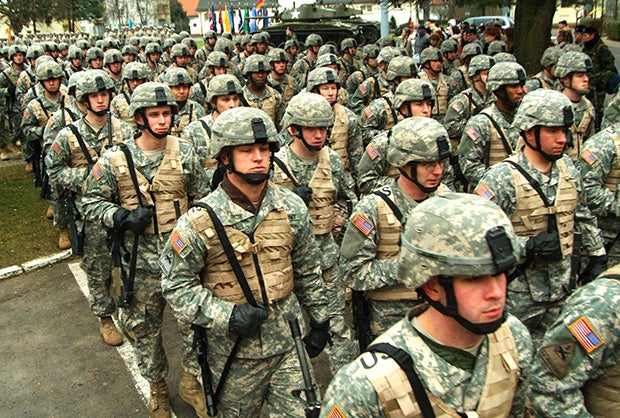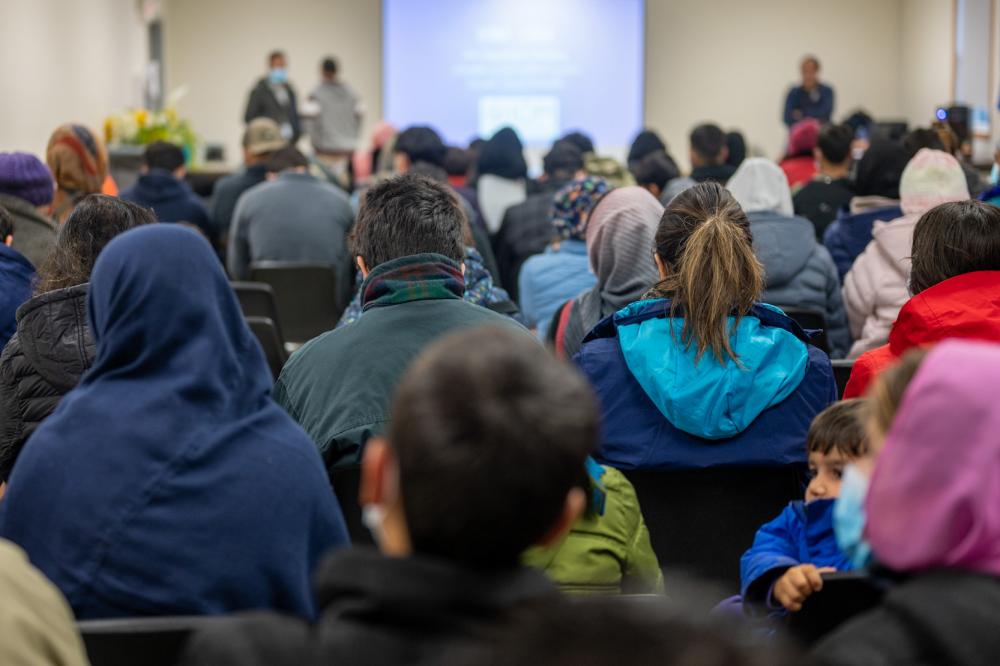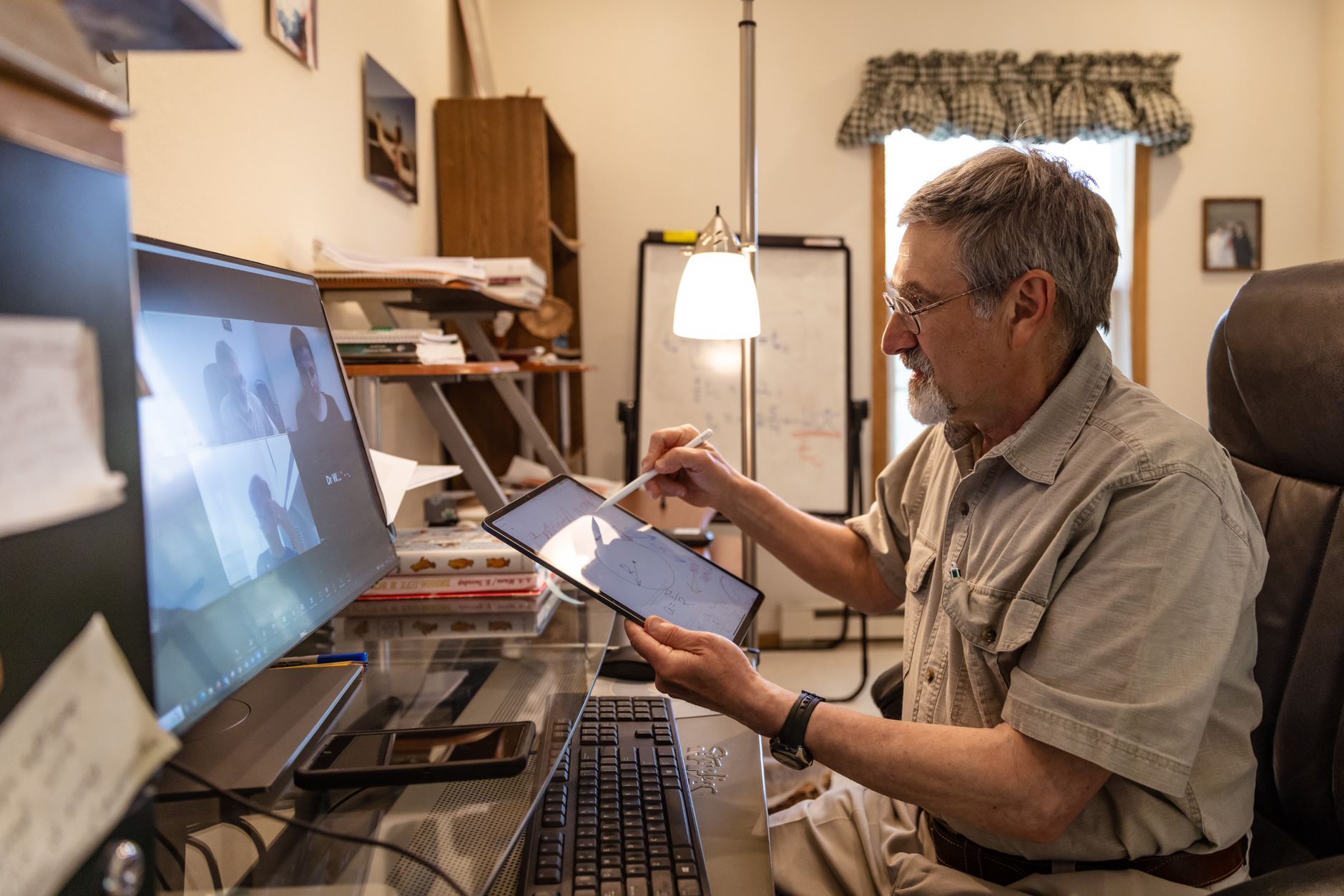Between 11 and 20 in every 100 soldiers returning from military operations in Iraq and Afghanistan suffer from post-traumatic stress disorder, also known as PTSD, according to estimates from The U.S. Department of Veterans Affairs.
But often, soldiers don’t recognize the impact of that trauma until they’ve left military service and attempted to reintegrate into life back home. Why is that? How could being alone in your apartment, back among the amenities and safety of everyday life, feel more stressful and dangerous than being in a war zone?
“We’re a species that’s clearly wired to survive trauma, or we wouldn’t be here,” Sebastian Junger, an award-winning author and filmmaker, said. “But maybe (PTSD is) a function of trauma, plus returning to an alienated individualistic society. Maybe that’s what the human psyche can’t handle.”
News with a little more humanity
WPR’s “Wisconsin Today” newsletter keeps you connected to the state you love without feeling overwhelmed. No paywall. No agenda. No corporate filter.
Junger has covered the experience of being in a war zone in books such as “War” and such as such as “Restrepo.” Now, in his newest book, “Tribe: On Homecoming and Belonging,” Junger explores what it means to return from a war zone.
The premise is that strife and danger engenders a sense of community and belonging by forcing people to rely closely on one another for survival.
PTSD doesn’t only affect veterans. According to statistics published by the nonprofit PTSD United, “an estimated 8 percent of Americans − 24.4 million people − have PTSD at any given time.”
Talking with soldiers about their experiences, Junger realized their feelings about home mirrored his own after returning to the United States after being embedded with troops overseas.
“It just feels like an antiseptic, commodified society where people are alienated from each other,” Junger said.
He said even sleeping alone can seem strange after spending extended time living and sleeping near the people who you depend on to stay alive.
“As much as that is a liberty from the pressures of the group, it’s also a significant and dangerous isolation there that really affects people,” he said.
Junger said this also may be why we tend to see the best of people in crises like the London Blitz or New York following 9/11 – it’s part of our wiring.
“These sorts of crises, at the national level, bring a sort of unity. The suicide rate in New York went down after 9/11. The murder rate, the violent crime rate, went down,” Junger said, noting in the 1800s, sociologist Emile Durkheim observed this decline of “anti-social behaviors” during times of crisis.
“Even in a blizzard or a blackout, people look back with real fondness on times that should have been very frightening and hard,” he said. “But people remember them fondly precisely because the whole floor of your building was clustered (around) one candle, waiting out the blackout, and that feels good because it reproduces our evolutionary past, what we’re wired for.”
There’s evidence that social isolation does indeed shorten lives, and a part of that relates to feeling needed.
“One of the tragedies of modern society, despite all its benefits, is that we’re wealthy enough to believe that our community does not need our direct involvement,” Junger said. “We are effectively unnecessary for the survival of others. And that’s really, really demoralizing.”
So what’s the best way to ameliorate this sense of modern alienation, both for soldiers, survivors of trauma and the rest of us? Junger doesn’t have any easy answers – we can’t benefit from the social cohesion of conflict without also suffering by it.
One place to start may be more national unity about what constitutes an attack on the group and what the punishment should be. Junger argues, for example, a lack of concrete punishment for those responsible for the 2008 financial crisis might contribute to other Americans feeling powerless and alienated.
Another potential way to lessen the alienation of living in modern America? Lessening divisive political rhetoric, likely a tall order after the 2016 election season.
“No one out at Restrepo, the outpost that I was at – I mean, there were lots of tensions and dislikes, and there were guys that straight up hated each other – but no one had contempt for someone who might save their life tomorrow morning,” Junger said.
“And when you use contempt with a fellow American – a Mexican-American, or your political rival, a Democrat or a Republican – when you use contempt, and both sides do it, you’re basically saying, ‘You know what? You’re not really American.’”
As Americans all living under a Donald Trump presidency, remaining divided and coarse in our language toward members of Republican or Democratic parties seems fruitless, unhealthy and self-defeating. Instead, Junger said purpose and community engagement provides a roadmap of how we might move toward a more positive, more-engaged model of being an American citizen in 2017.






